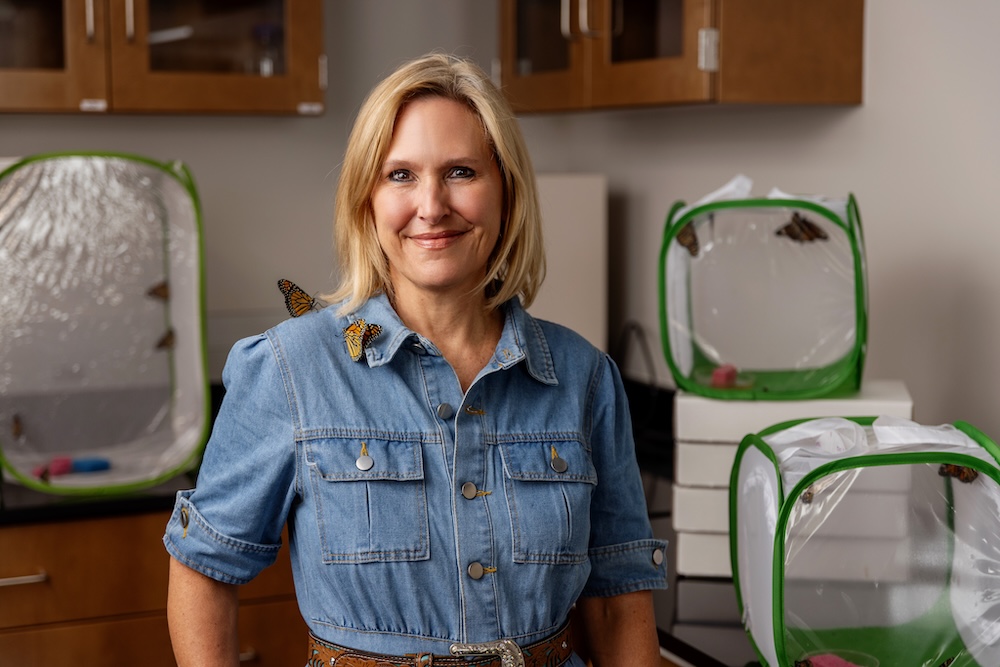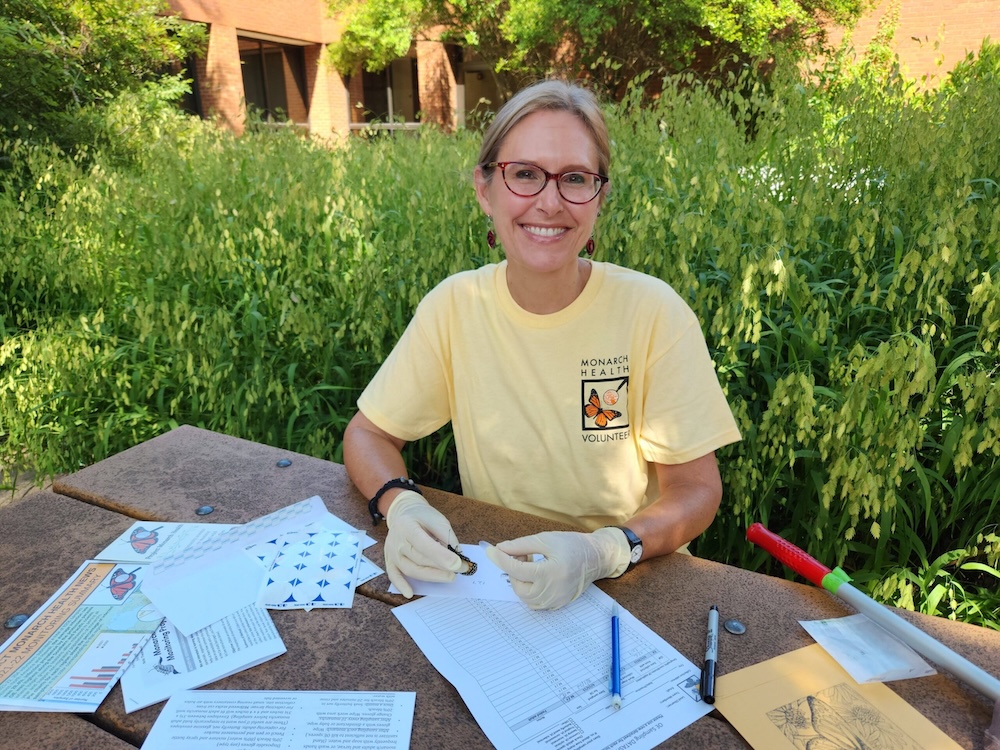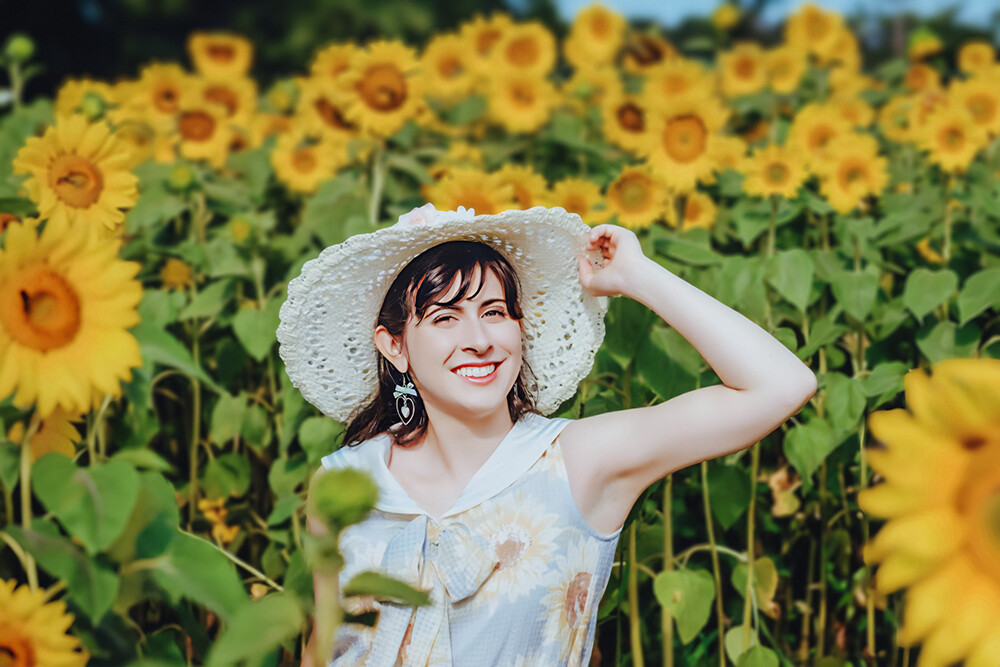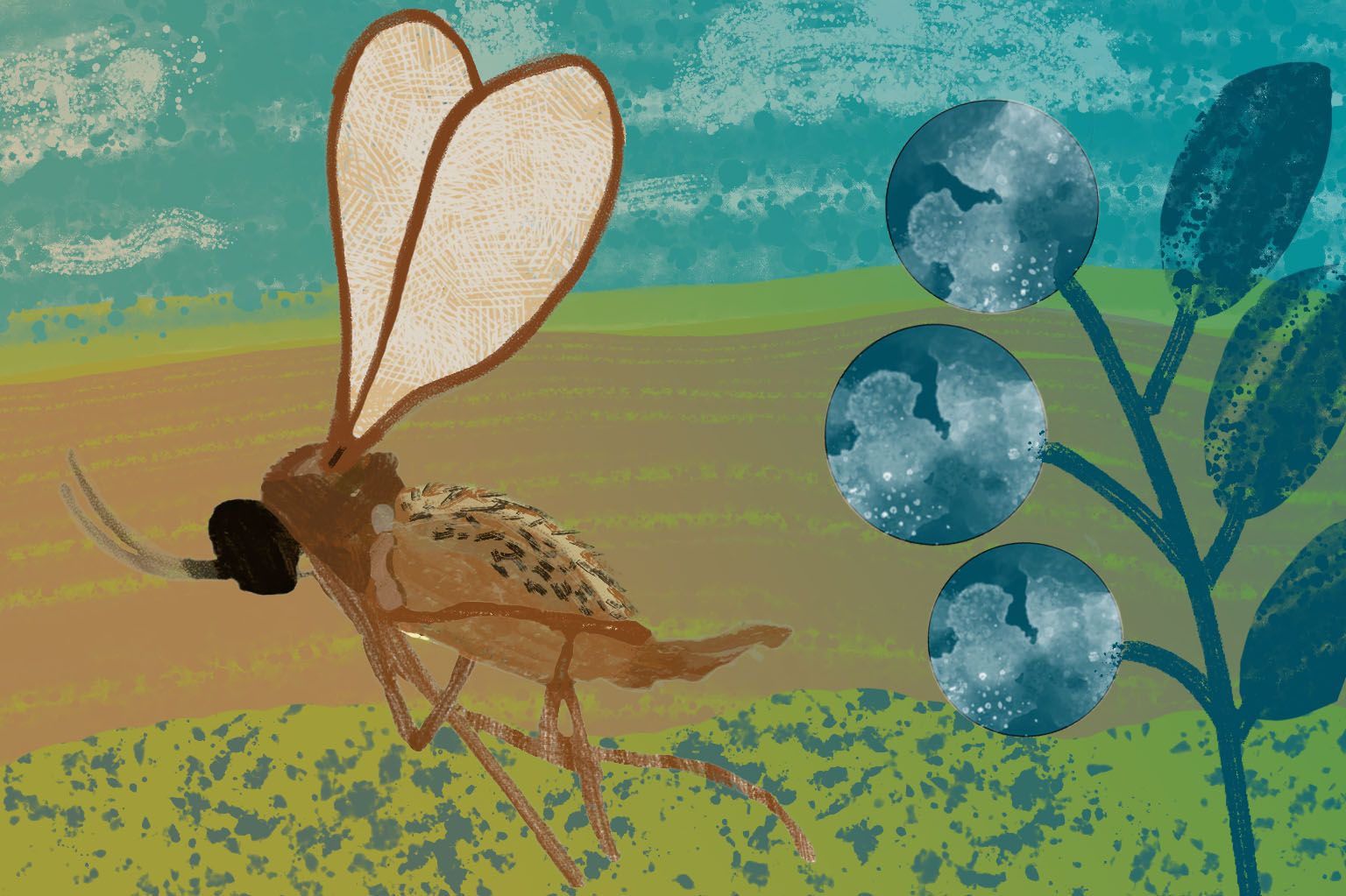
For Sonia Altizer, insects have always been a gateway to understanding the natural world.
“In my heart, I’ve always been an insect scientist,” she said. “Working with insects offers such a powerful lens into ecology, evolution and even the ways human interactions with these creatures shape the natural world.”
Altizer, who began her role as head of the Department of Entomology in the University of Georgia College of Agricultural and Environmental Sciences (CAES) on May 1, brings with her a wealth of experience in research, public service and academic leadership. A faculty member at UGA since 2005, she served as interim dean of the Odum School of Ecology from 2021 to 2023 and most recently as the school’s director of public service and outreach.
Formerly the Martha Odum Distinguished Professor of Ecology, Altizer is also a 2024 Fellow of the Ecological Society of America, a 2020 Fellow of the American Association for the Advancement of Science, a 2025 UGA Distinguished Research Professor, and a recipient of the Lamar Dodd Creative Research Award from UGA. Her research focuses on how animal movement and environmental change shape infectious disease dynamics in natural populations, with much of her work centered on monarch butterflies and the protozoan parasite Ophryocystis elektroscirrha.
Her long-running community science initiative, Project Monarch Health, invites the public to collect and submit samples from monarch butterflies to help monitor disease prevalence and distribution. The project exemplifies her passion for connecting people with science.
Now, she is eager to bring that same energy and ethos to entomology at CAES.
Honoring the past, building the future
“I have long admired the work that happens in CAES in terms of the whole spectrum, doing work that’s at the leading edge of science and taking that knowledge and translating it into real-world solutions for growers and communities across the state of Georgia and beyond,” Altizer said. “Entomology has a rich history at UGA, and I feel incredibly fortunate to be part of this department at a pivotal time.”
Altizer succeeds Kris Braman, who led the department for 12 years and will return to the faculty. Under Braman’s leadership, the department grew its footprint in medical entomology, pollinator health, agroecosystem science and public outreach, all of which remain key priorities.
Altizer describes the current moment as transformational. With several long-serving faculty members retiring and new opportunities for recruitment, she sees this as a chance to celebrate the department’s legacy while investing in its future.
“The department is known for having people who come here and stay,” said Altizer. “There’s a strong culture of collaboration, and I want to honor the careers of those who have built that foundation while bringing in new scientists who will expand our strengths in emerging areas like data science, biotechnology and vector-borne disease.”
She also sees potential in innovations that are reshaping how scientists study insects, from environmental DNA sampling to artificial intelligence and real-time remote monitoring. “We’re collecting more diverse data than ever before. Finding ways to integrate that information into research and agricultural practices is going to be a major part of entomology’s future.”
Science that serves
Altizer explained that her former field of ecology is inherently interdisciplinary — drawing from the biological, physical and environmental sciences. Thus, one of her greatest strengths lies in thinking and collaborating across disciplines. She sees this as a key asset in picking up the torch and carrying entomology into new spheres of science.
“Entomologists work across scales of organization from molecules to ecosystems and require an understanding of how humans interact with the natural world. That human element is baked into entomology — whether it’s managing agricultural pests, protecting pollinators or controlling disease vectors.”

Altizer is especially excited to learn more about is UGA Cooperative Extension. “I knew about Extension before, but I hadn’t appreciated the depth and breadth of its impact,” she said. “The idea that there are Extension agents in every county — that we have this vast, living bridge between university science and the everyday lives of people in Georgia — that’s remarkable.”
She plans to spend time in the field, learning from Extension faculty and staff. “They’re incredible ambassadors for the university and for science. They translate research into action and help identify the real-world problems that should guide our research. That’s a powerful feedback loop.”
Collaboration at the core of leadership
Reflecting on her long career history, Altizer said the most fulfilling part has always been supporting people and programs. She sees departmental leadership as a collaborative process.
“I don’t see my role as making decisions in isolation. It’s about bringing people together to define a vision and figuring out how to achieve it,” she said. “What gets me up in the morning is the opportunity to work with brilliant, passionate people and help them do what they do best.”
She’s especially inspired by the department’s public outreach efforts, such as the UGA Insect Zoo, and wants to explore how those resources can be further leveraged to engage new audiences. “Insects are such a powerful teaching tool,” she said. “They’re strange and beautiful and unlike anything else, and they touch every part of life on Earth.”
As she settles into her new role, Altizer is most energized by the people and the possibilities ahead. Whether it’s using new technologies to drive research or tackling issues like invasive insects or conservation, she said it’s important to keep the department’s applied mission front and center — making sure the science connects to the needs of Georgia’s communities.
“For many years, Dr. Altizer has been recognized not only across the University of Georgia community but also on the national stage as a visionary leader and thinker in environmental research, so I am delighted to welcome her to the College of Agricultural and Environmental Sciences as the new head of the Department of Entomology,” said CAES Dean and Director Nick Place. “Even in her first weeks in the role, her passion and energy have been so evident. With a department that’s already nationally recognized for cutting-edge research and hands-on education, I am confident that under Dr. Altizer’s leadership, our entomology program will continue to thrive and reach new heights.”




